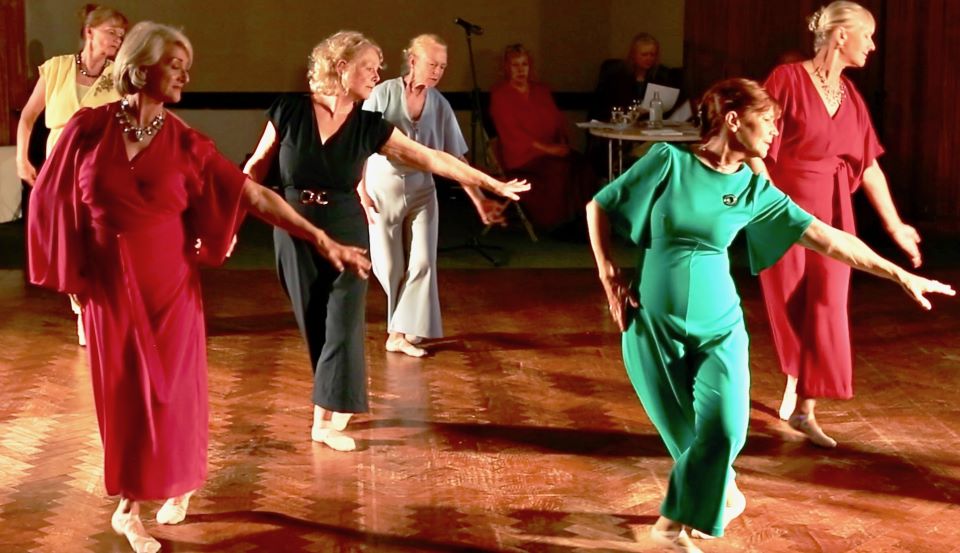Parliament is based on political parties, but most of us approach politics through the particular issues that we care about. We should open up Parliament by giving campaigning and representative groups a bespoke presence in the heart of our democracy.

Comment spotlight
Are you an RSA Fellow? Submit your original article to Circle and it could be featured as the next Comment spotlight.
This Comment is part of our Spotlight series highlighting the most engaging articles submitted to the Comment space on Circle from Fellows. If you have an article you would like to share with the Fellowship, click the link to upload it now.
The Post Office scandal is being called the ‘greatest miscarriage of justice in British history’. But, sadly, there are many competitors for that title. From contaminated blood to Windrush, justice has often seemed to be in short supply. All three cases tell a similar story: a serious problem was well known in Westminster, but the problem’s victims were ‘ordinary’ people and they were fobbed off by those in power.
Being fobbed off, however, does at least mean that they had been noticed. Many other ‘ordinary’ people fall largely below the political radar. They live in ‘left behind’ areas and work in ‘left behind’ industries. Such people enjoyed a rare moment in the political spotlight after the Brexit vote (even if their actual concerns received less attention). It is telling that the winning slogan in the Brexit referendum was ‘Take Back Control’.
‘Take Back Control’ was effective because too many of us feel that we have too little control over too many of the decisions that shape our lives. Part of the problem is that the centre of our political system, Parliament, does not reflect the way in which most of us approach politics. While Parliament is based on political parties, we tend to focus on political issues.
Rather than joining political parties, we tend to support the single-issue representative and campaigning groups that press for particular action in the areas that matter to us. These representative and campaigning groups are a vital part of the way in which Britons practise democracy, but they seldom get the political influence that they deserve.
It cannot be right that British citizens with a valuable and important argument should find their democracy such an unwelcoming place.
Democratic deficit
The Justice for Subpostmasters Alliance founded by Alan Bates is a perfect example. They had to strive for years to be heard. Then, having been heard, they had to keep striving to get action taken. Even then, it was only after ITV broadcast Mr Bates vs the Post Office that public outrage finally forced the government to get its act together. That cannot be right. It cannot be right that British citizens with a valuable and important argument should find their democracy such an unwelcoming place.
We need to open up Parliament so that our representative and campaigning groups can have their say on our behalf in our Parliament and, through Parliament, in the country more widely. They need a platform from which they can speak directly to the government. Importantly, however, this platform must also enable them to speak to the country at large and thereby to have the chance of winning the public support that will make the government pay proper attention. This platform could best be created by giving our campaigning organisations a bespoke presence in Westminster: a House of Campaigns.
The House of Campaigns would be a new addition to Parliament that would give representative and campaigning groups a bespoke presence in the heart of our democracy. The new House would have no permanent membership but rather would be open to our country’s campaigning organisations and individuals. It would meet once a month (initially in Westminster and then around the country) and would give each participating campaign a 30-minute slot in which to make their case. This case would have to conclude with a ‘Request for Action’.
The House of Campaigns would lead to better-informed government. It would allow ordinary people to have the access and influence for which the wealthy pay lobbying firms.
Comply or explain
The Request for Action would ask a specific government department to take some specific action (such as bringing forward legislation). While the government would not be obliged to comply with the Request for Action, it would be obliged to provide a detailed response explaining either the action that it did propose to take or why it did not propose to take any action.
The House of Campaigns would lead to better-informed government. It would allow ordinary people to have the access and influence for which the wealthy pay lobbying firms. More broadly, in the context of an increasingly fractured (and fractious) national conversation and where social media seems set on entrenching divisions, it would be a great advantage to have a formal, neutral, public space in which different arguments can be made in detail and different thoughts explored properly.
Given that the Royal Society for Arts, Manufactures and Commerce is ‘a global network of changemakers enabling people’ to make an impact, a House of Campaigns could be right up our street. I first set out the idea in my Shaping a new normal article for the RSA in 2021 and have described the proposal in more detail on the Campaigns in Parliament website.
I would like to see if the RSA and its Fellows might be interested in giving the idea their support and taking it off the drawing board and into Westminster. If you have any suggestions and/or would like to be involved at all then I would be very keen to hear from you – please contact me on Circle.
Richard Ellis is founder of Campaigns in Parliament.

Become an RSA Fellow
The RSA Fellowship is a unique global network of change-makers enabling people, places and the planet to flourish in harmony.

Discover Circle
Bringing Fellows together in collaboration on their innovations and our mission.
Read other Comment articles from our Fellows
-
Ten ways to improve planning in the UK
Comment
Steve Newman
Steve Newman offers provocative propositions to modernise the planning system, create affordable and sustainable homes, and offer financial benefits to the government and local communities.
-
Black History Month: Q&A with I. Stephanie Boyce
Comment
Deborah Ajia
The first Black president of the Law Society discusses how she overcame the odds to rise to the top of her profession, and is now helping to drive social change as an RSA Fellow.
-
Keep dancing!
Comment
Barbara Berkeley-Hill
Age should be no barrier when it comes to dance. Barbara Berkeley-Hill discusses how dancing can help older generations feel younger, happier and more connected.



